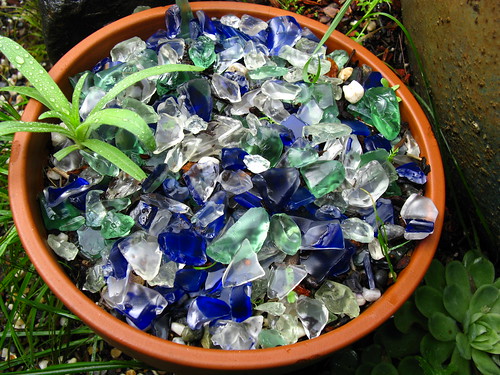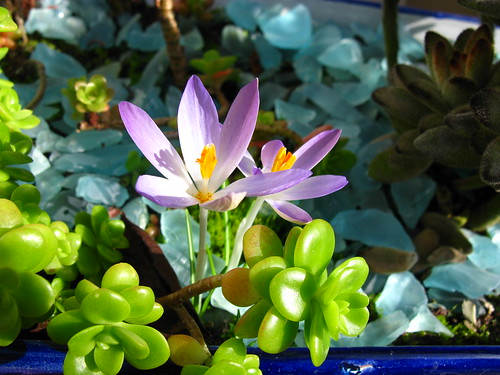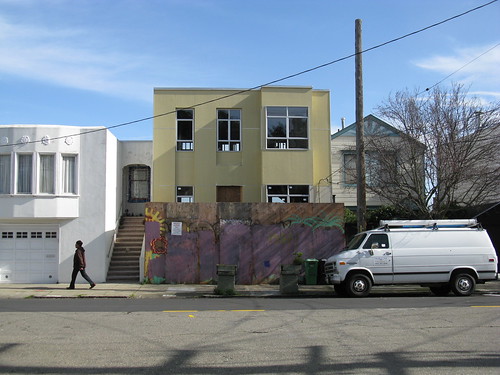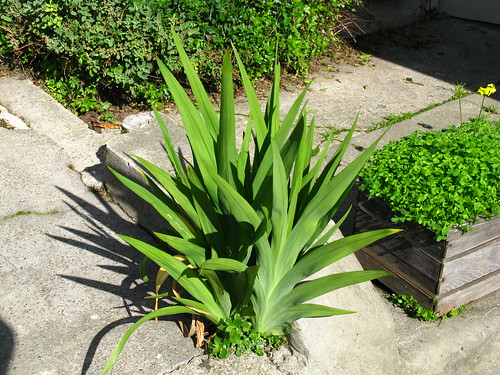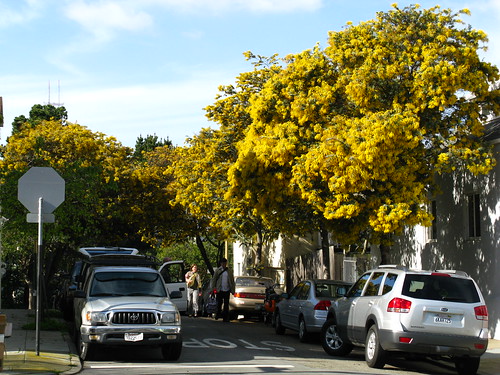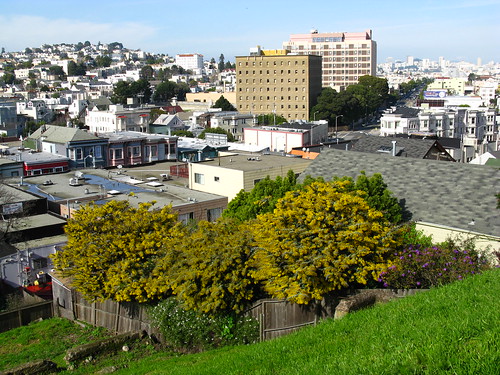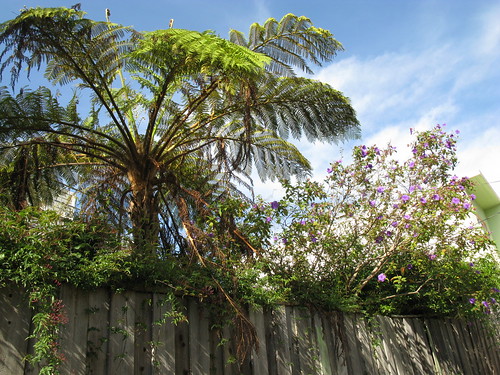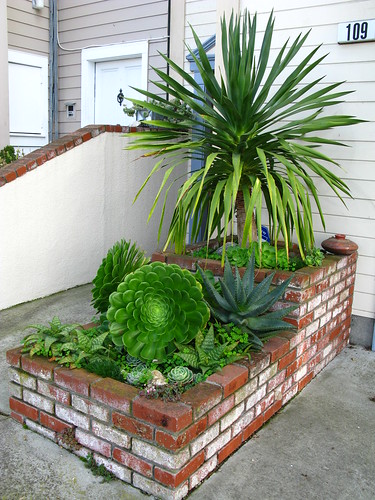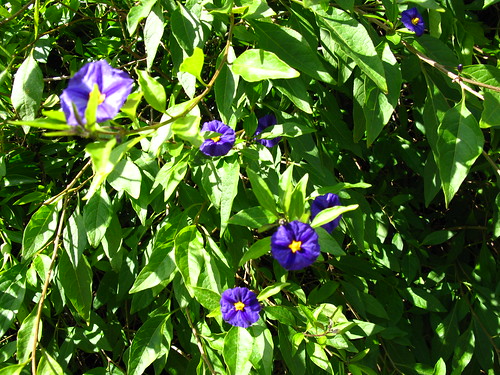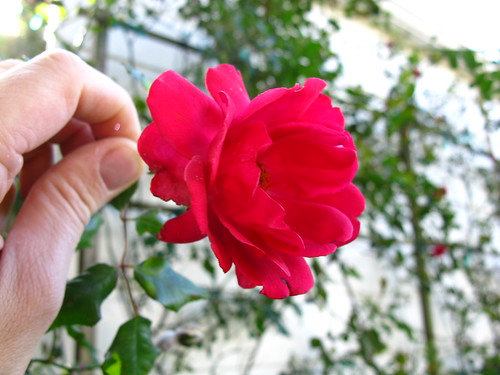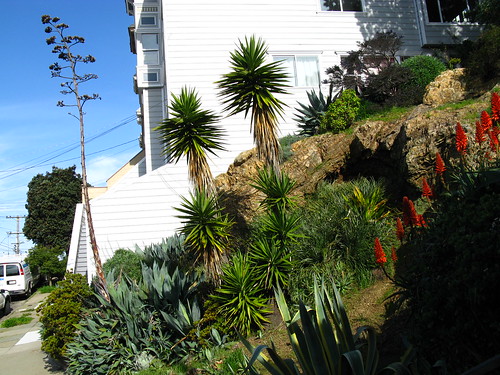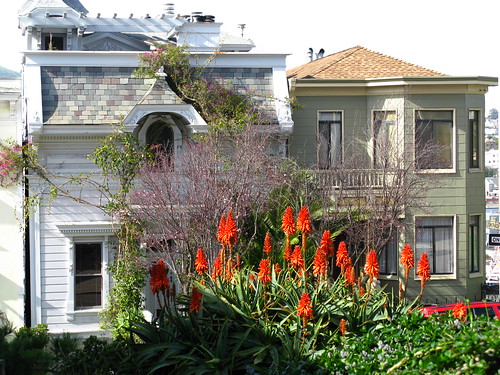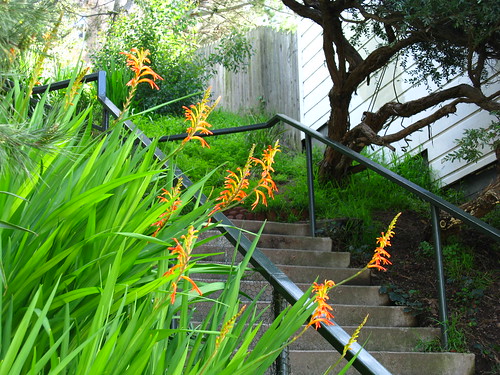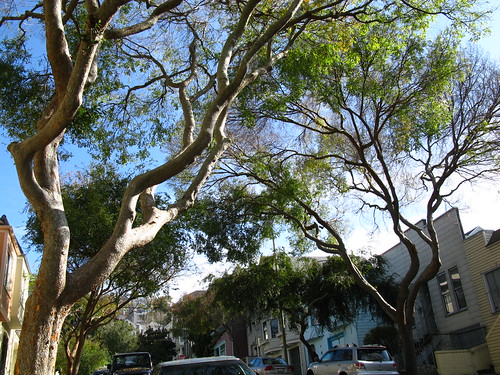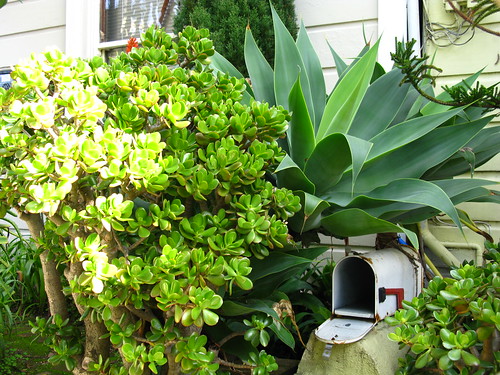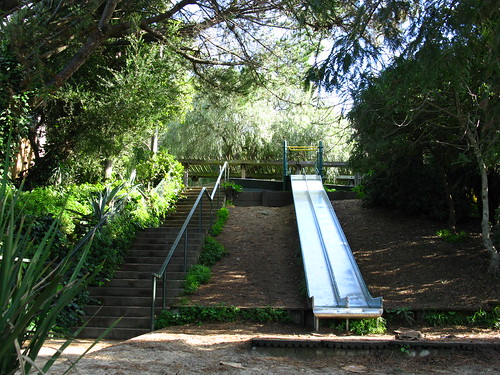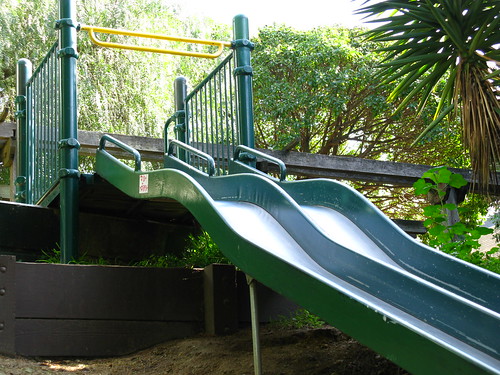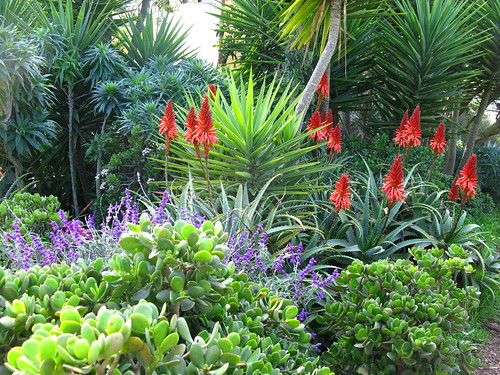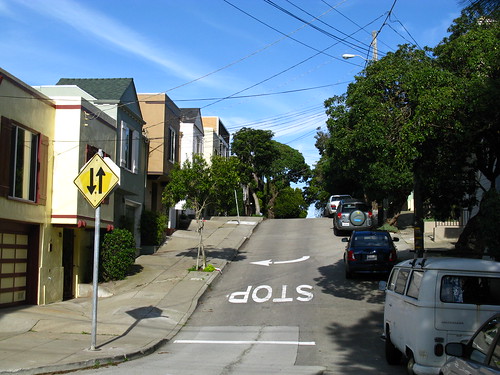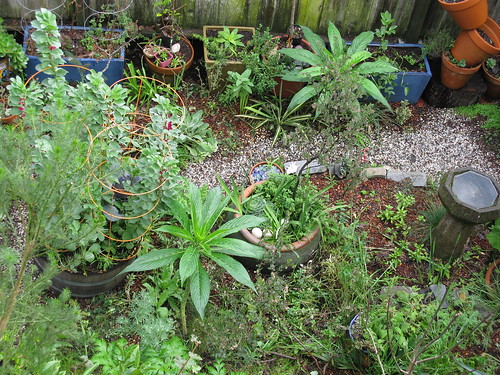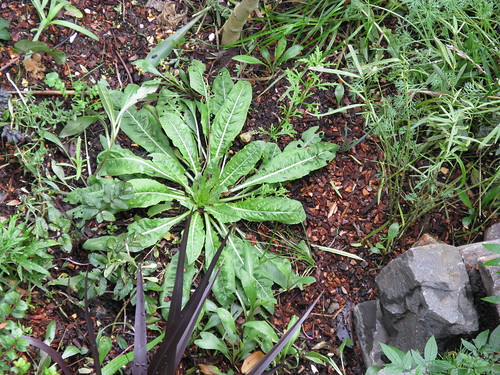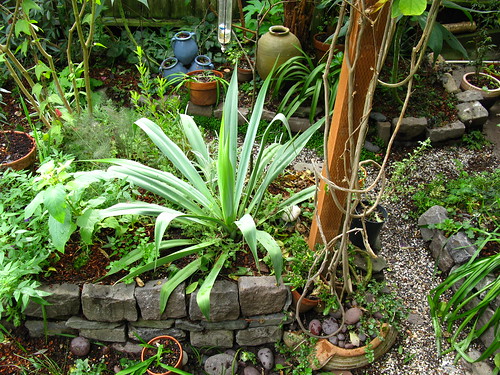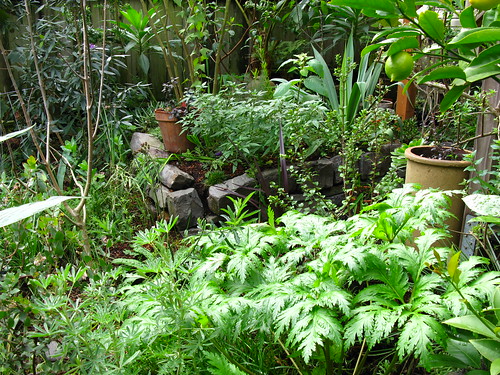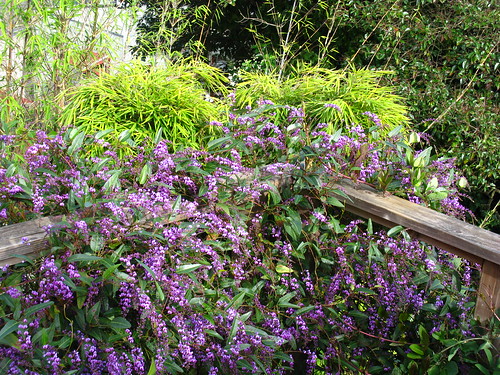Does the TV weatherman use that expression where you live too? It cracks me up. Yes, the storm door is open and the storms have been barging through it all week.
Today we got a tiny bit of blue sky. I used it to frame this picture of
Senecio cristobalensis and to show you its emergent flower stems. This is the fastest growing plant in my garden, ever.

Moments after I took this picture, the sky went white again. Because
somebody (I won't say who) left the storm door open! At any rate, you can evaluate the evidence for yourself, but I think my picture is conclusive: the sky remains blue on the other side of the clouds.
As the Senecio continues to grow and intermingle with some of ther cloud forest species I have
(Tibouchina,
Fuchsia), we're starting to get some canopy action going on, which is exciting.
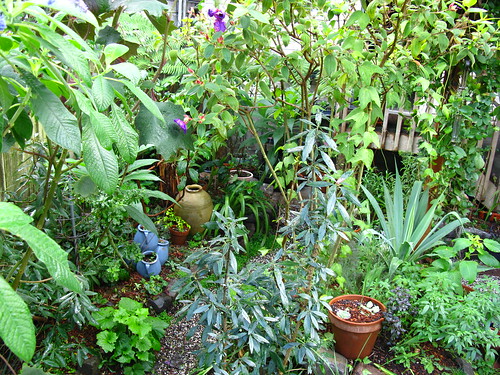
A few of the smaller passionflower species climb up all these plants. They may help to knit together a canopy in a year or two.

Hopefully, the Tibouchina and Fuchsia will provide a solid-enough wood support. I'm not sure about Senecio's long-term prospects. The young shoots are very fleshy, even succulent, but the stalk feels solid. We'll see. At any rate, any canopy will be monitored closely.
I went down to the garden hoping to find some groovy fungi. We had some new mushrooms in '09, and I hope for more in 2010.
It would be great to get one of those mushroom kits all the nurseries are selling, but not for $40. Yikes. Instead, I try to mulch regularly with different kinds of organic material, and I spread compost now and then.
Anyway, I didn't find any mushrooms, but the moss on the birdbath is back. The little clumps get bigger every year. People in the PNW will laugh at me, but I think my 2-inch piece of moss is exciting!
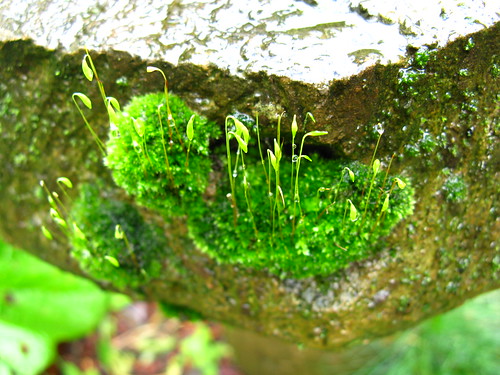
The only actual fungus I found was this orange, crustose material on my oak half-barrels. I'm sure if you can use the word
crustose to describe a fungus, but maybe this is a lichen and not a fungus afterall.
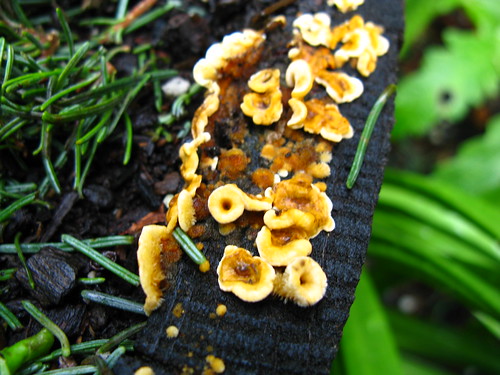
Two cherries were new to me last year. They shouldn't flower for months still, but it sure looks like the buds are swelling. And what's the stippling up and down the stems?

You can see the lichen-dusted fence in the background.

The camera doesn't quite get how bright green it really is.
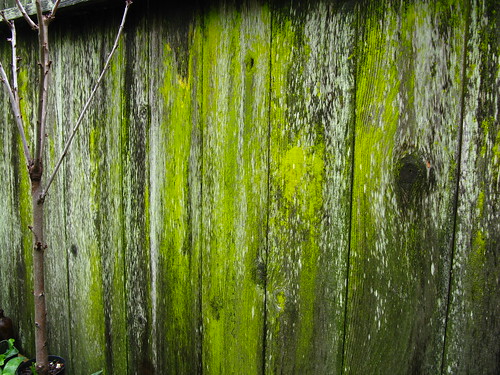
The snowberry (
Symphoricarpos sp.) looks much better growing in the shade where it belongs.

It's just a filler, but it's a pretty filler.
Delphinium cardinale is flowering already. Wind blew the stem into the manzanita bush and it can't seem to extricate itself.

A different manzanita has some flowers on it, but I think the wood is more interesting.
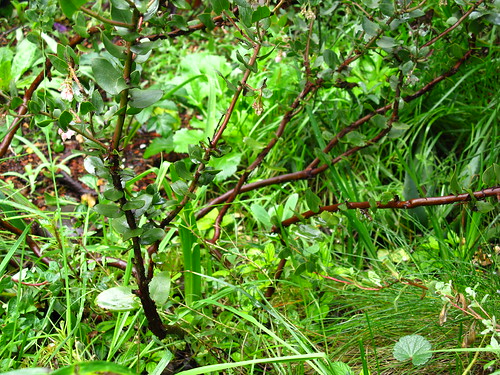
The Ceanothus is flowering now too but the rain-drenched flowers can't be very satisfying for the bees. Or maybe the bees don't care. I don't know.

I can't get over how red the Centradenia leaves are.
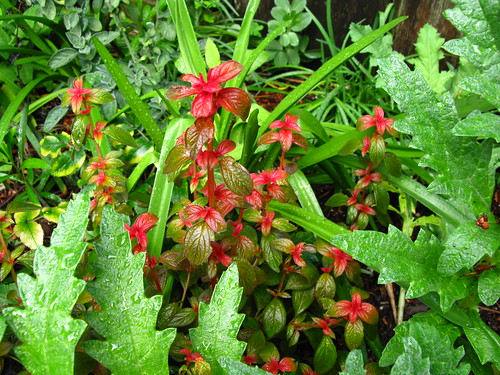
And I'm happy to say cabbage grows unmolested in my garden and seems to need no attention from me.

This was just an experiment to see if cabbage would grow at all. I might consider it as a winter vegetable crop, but cabbage takes
so long to ripen... Too bad kale isn't an option. Bugs eat the heck out of kale.
This is Cretan Rock Lettuce (
Petromarula pinnata). You can get it at Annie's Annuals, but I grew mine from seed. Young leaves are edible and salad-worthy and
it looks like this when it flowers.
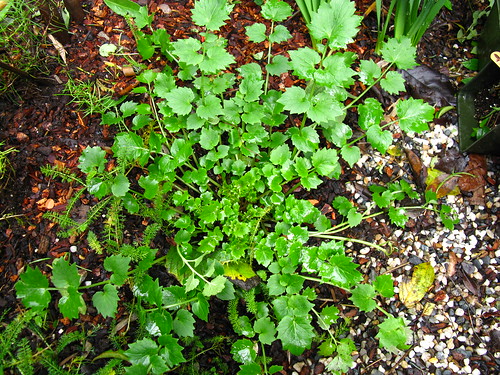
I have a nerine bulb in this pot, but I think I like it more as a pot of tumbled glass.
